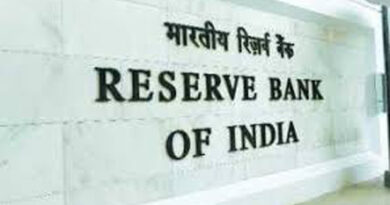Paytm Fiasco
This year, on January 31, the Reserve Bank of India (RBI) ordered Paytm Payments Bank Limited (PPBL) to stop on boarding new customers after February 29, 2024. The RBI also directed PPBL to refrain from accepting further deposits, conducting credit transactions, or carrying out top-ups on any customer’s accounts, prepaid instruments, wallets, or cards for paying road tolls after February 29, 2024. However, no restrictions were imposed on the current customers who can continue to use their balance until it is exhausted. They will not be able to add money after February 29, 2024.
PPBL is a subsidiary of One97 Communications Limited (OCL), which holds 49% of the paid-up share capital (directly and through its subsidiary) of PPBL. The managing director of PPBL, Vijay Shekhar Sharma, has a 51% stake in the bank. PPBL started its operations as a payments bank in May 2017 and offers digital banking services, including savings accounts, current accounts, fixed deposits with partner banks, and balance in wallets, UPI, and FASTag services.
The RBI’s decision to clamp down on Vijay Shekhar Sharma-run entities came after concerns over money laundering and questionable dealings involving hundreds of crores of rupees between Paytm and its lesser-known banking arm. According to sources, PPBL had lakhs of non-KYC-compliant accounts, and in thousands of cases, single PANs were used for opening multiple accounts. There were instances where the total value of transactions exceeded the regulatory limits in minimum KYC pre-paid instruments, raising money laundering concerns.
‘Paytm Karo’ – no more melodious
The popular “Paytm karo” jingle may sound like noise to some these days, and the blame for this lies with the management of the OCL. Although it has been communicated to every Paytm user that the app will continue to function as usual beyond 29th February 2024, this may seem like an overly confident statement from a business that appears to have forgotten basic governance principles. This has caused concern among the millions of Paytm users.
PPBL, with 50 million account holders and is part of a group that has 300 million wallets, has been facing a lot of problems with non-compliance and supervision. In March 2023, the banking regulator warned them not to onboard new customers but the management did not take any action to correct the situation. There were several warnings about falsified compliances, irregularities in KYC norms, and rules about related-party transactions but they were ignored. As a result, the regulator had no choice but to bar PPBL from key operations. It will be a crippling blow to the bank. Additionally, they have been directed to terminate the nodal accounts of the parent firm and Paytm Payment Services.
About a quarter of all UPI transactions on Paytm are credited to a PPB account. However, the regulator has determined that there is no separation between Paytm and the bank. This means that money and data are flowing too freely between the two entities, even when they shouldn’t. Paytm now faces a challenge in forming partnerships with other banks for UPI transactions, which will require a significant shift in its business model. This will not be an easy task, given that lending partnerships are built on trust. Few banks will be willing to partner with an entity that is currently under strict regulatory and government scrutiny. The revenue secretary, Sanjay Malhotra, has stated that PPB will be investigated if there are any new allegations of fund siphoning. Global brokerages Jefferies and Macquarie are both concerned that these issues could cause Paytm’s lending partners to become nervous and limit their business with the fintech. The situation is unfortunate for Paytm’s investors, as the company’s performance has been disappointing since it became publicly traded in November 2023. This latest episode will only exacerbate their frustrations.
Not a speed bump
Conflicts between regulators and the entities they regulate are not uncommon. However, when such conflicts occur in the financial sector, they take on a different significance. Regulated entities in this sector have a crucial responsibility to manage money for clients rather than for their benefit. Any failure on their part can have a massive impact on the larger economy, as was seen in the US subprime loan crisis that led to the 2008 meltdown. Regulators, on the other hand, have a vital responsibility to ensure the safety and stability of the financial system. Therefore, the recent clash between the RBI and PPBL, which resulted in RBI imposing restrictions on several PPB activities from 29 February, should be viewed as a roadblock rather than a minor “speed bump”, as described by PPBL’s founder, Vijay Shekhar Sharma. The conflict with PPB should be seen as a wake-up call for RBI to treat the “speed bump” as a significant obstacle and take immediate action on the holding company model.
This episode focuses on the lenient policies adopted by payment banks, small finance banks, and other fintech payment gateways while on boarding new customers. These companies often fail to adhere to the mandatory KYC checks, resulting in the creation of fake accounts using fake IDs. This trend seems to be widespread as these entities try to demonstrate higher customer additions.
To conclude, the RBI’s directive to PPBL highlights serious irregularities in the bank’s controls and checks. It raises concerns about similar lapses occurring in other fintech service providers. Although it is important to encourage the rapid increase in digitisation of payments, it should not result in regulatory laxity. Therefore, RBI has taken a good step in cracking the whip on Paytm Payments Bank and should follow this up with tighter surveillance of such entities. These service providers have not been able to further financial inclusion through lending, and also suffer from a lack of transparency. RBI needs to review the fundamental question of whether there is a place for payment banks in the financial system.




